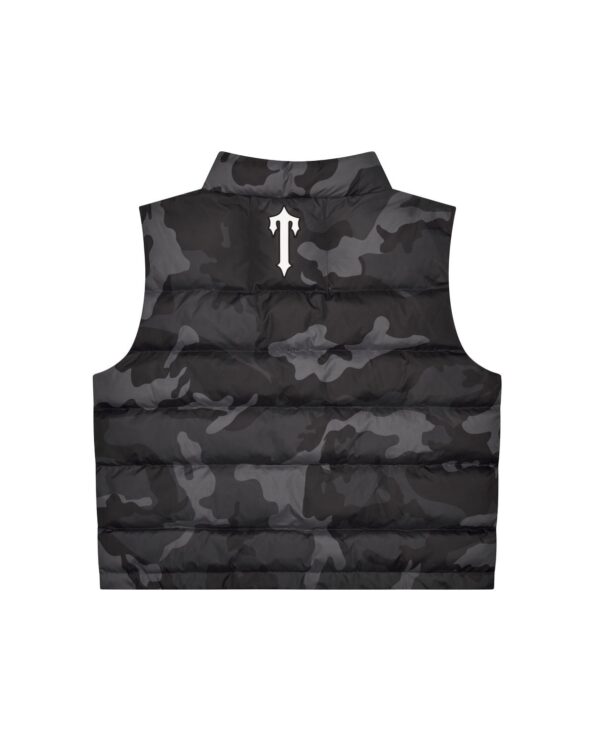Introduction
Fashion is more than clothing; it is a reflection of culture, identity, and the times we live in. Among the many streetwear labels that have grown into global icons, one brand sparks curiosity for many fans worldwide: Trapstar. A frequent question that arises is “Is Trapstar a British brand?” The answer is a resounding yes. Trapstar is a homegrown London label that transformed from underground street fashion into an internationally respected name.
In this article, we’ll explore the story of Trapstar’s British roots, how it embodies UK street culture, the role of music and celebrity endorsements in its rise, its expansion into global markets, and why its London identity remains central even as the brand grows.
Trapstar’s Origins in London
Trapstar was founded in 2008 by three friends: Mikey, Lee, and Will. All three were deeply connected to London’s youth culture, where music, street style, and creativity merged. Unlike many brands that begin with large investments and flashy marketing, Trapstar’s story is rooted in authenticity.
The founders started small, selling customized T-shirts directly to friends, neighbors, and local communities. Their early pieces often featured bold graphics, rebellious slogans, and a mysterious aura that kept customers intrigued. Many of the first sales happened from the back of cars and small pop-up setups. This underground distribution method helped build a sense of exclusivity—if you had a Trapstar piece, you were part of something special.
Why London Matters to Trapstar
London is a melting pot of cultures, sounds, and styles. Trapstar could only have been born in such a diverse and creative city. The British capital has long influenced global fashion, but Trapstar specifically tapped into three key cultural pillars:
Grime and UK Music Culture
Trapstar’s designs and identity were closely tied to the grime music scene. Artists like Skepta, Stormzy, and Giggs embraced the brand early, helping cement its status as an authentic reflection of London’s urban youth. Unlike mainstream brands that chase trends, Trapstar lived inside the music, nightlife, and streets where this culture thrived.
Street Fashion and British Edge
British streetwear has its own flavor, different from the baggy hip-hop aesthetics of the US or the meticulous minimalism of Japanese streetwear. London style mixes high fashion with raw street energy, and Trapstar embodied that perfectly. Its dark color palettes, gothic-inspired fonts, and bold graphics carried a distinctly British edge.
The Underground Scene
Trapstar’s founders deliberately kept their brand exclusive in the early years. They used slogans like “It’s a secret” and cultivated an insider-only vibe. This approach mirrored the underground music raves, pirate radio culture, and hidden fashion drops that defined London in the 2000s.
The Rise of Trapstar Beyond London
While Trapstar is undeniably a British brand, its appeal quickly spread internationally. Celebrities outside the UK took notice, including Rihanna, A$AP Rocky, and Jay-Z. These figures didn’t just wear Trapstar casually—they showcased it at concerts, in music videos, and on major stages.
The brand’s partnership with Roc Nation, Jay-Z’s entertainment company, further expanded its global reach. When Jay-Z co-signed Trapstar, the world began paying attention. Yet despite its growing fame, Trapstar always emphasized its London heritage in interviews, campaigns, and collections.
Trapstar’s British Identity vs. Global Fame
Some fans wonder if Trapstar has “gone international” to the point of losing its UK roots. The truth is that Trapstar manages to balance both identities.
- British Influence: Trapstar continues to draw inspiration from London’s slang, music, and urban culture. Campaigns often feature UK-based artists, and collections nod to the brand’s origins.
- Global Reach: Today, Trapstar is sold in multiple countries and embraced by celebrities across continents. Its recognition as a global streetwear powerhouse doesn’t erase its heritage—it strengthens it.
Trapstar and British Creativity
The UK is no stranger to producing influential fashion movements. From punk in the 1970s to Alexander McQueen’s rebellious artistry, Britain thrives on creativity. Trapstar continues this tradition by merging subculture with high fashion.
For many fans, buying Trapstar isn’t just about getting a hoodie or jacket—it’s about owning a piece of British culture. The brand has become symbolic of resilience, self-expression, and authenticity.
What Makes Trapstar Uniquely British?
1. Language and Slogans
Trapstar uses slogans and typography that resonate with British slang and London youth culture. This makes its designs instantly relatable to locals.
2. Musical Roots
Trapstar is inseparable from grime and UK rap, genres born in London. This connection reinforces its identity as a British label.
3. Distribution Methods
The brand’s early underground sales approach reflected the UK’s culture of exclusivity, pirate radio, and hidden events.
4. Multicultural Influence
London’s diversity fuels Trapstar’s creativity, mixing styles and references from Caribbean, African, and British working-class influences.
Trapstar as a Symbol of British Streetwear
Trapstar stands alongside other UK fashion exports like Palace and A-COLD-WALL*. But what sets Trapstar apart is its ability to appeal to both underground fans and international celebrities without diluting its identity.
By calling itself British, Trapstar not only acknowledges its origins but also positions itself within a global market where authenticity is highly valued.
Common Misconceptions
- “Trapstar is American because Jay-Z owns it.”
False. Jay-Z’s Roc Nation only has partial ownership. The brand was founded in London and remains based in the UK. - “Trapstar lost its British identity once it went global.”
Incorrect. Trapstar continues to infuse London’s street culture into its designs and campaigns.
Conclusion
So, is Trapstar a British brand? The answer is yes—100%. From its London-born founders to its grime influences and underground beginnings, Trapstar reflects the culture and creativity of the UK. While it has grown into a global streetwear powerhouse, its DNA is firmly British.
Owning Trapstar means owning a piece of London streetwear history. Whether worn on Brixton’s streets, a New York concert stage, or a Tokyo fashion week event, the brand remains a proud British export.
FAQs
Q1: Where was Trapstar founded?
Trapstar was founded in London, United Kingdom, in 2008.
Q2: Who are the founders of Trapstar?
The brand was founded by three friends: Mikey, Lee, and Will.
Q3: Does Jay-Z own Trapstar?
Jay-Z’s Roc Nation has partial ownership, but the brand remains British.
Q4: What makes Trapstar British?
Its founders, influences, slogans, and ties to UK music culture all reinforce its British identity.
Q5: Is Trapstar sold outside the UK?
Yes, Trapstar is available globally but continues to highlight its London roots.



